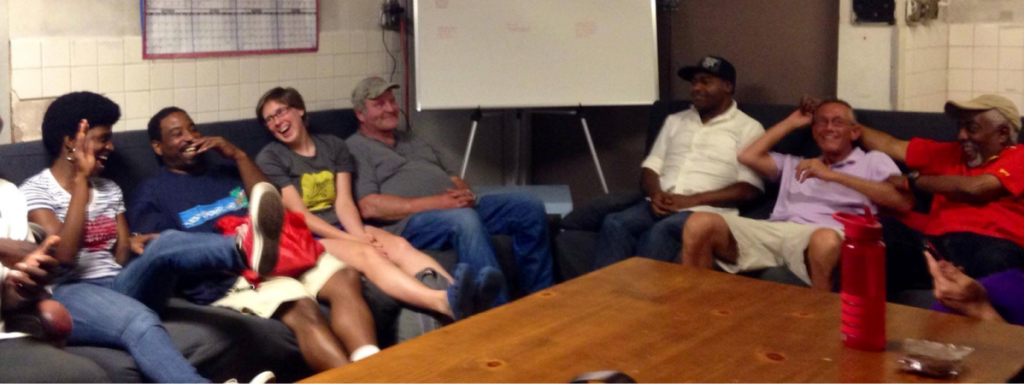How do we at REMERGE know that reconciliation is happening in a particular place or community?
Andy Odle in his book, Joining Lives lists out five indicators of reconciliation and this is how we as a community know we are doing what we say we are doing.
The first indicator is collaboration (Rom 12:4, 5). If we are one in Christ and members of one another then this should be reflected by working together toward common goals and vision with other Christians, churches, organizations, businesses, etc.
-What Christ-centered organizations are you working with in a particular neighborhood with a shared goal?
-How are you putting the interests of other Christians, churches, organizations and businesses above your own?
-In what ways are confessing that Jesus is Lord of our lives together?
The second indicator is the inclusion of the voice, contribution and influence of the most vulnerable (1 Cor 12:22–26). We can hardly say we take seriously the ministry of reconciliation if we claim to love the dishonored of the world and then tell them to sit quietly in the corner while we who have honor make decisions for them.
-How are you specifically welcoming the vulnerable into community and not just doing hand-outs?
-In what ways are you amplifying the voice, contribution and influence of the most vulnerable?
-Do the vulnerable have a place at the table when making key decisions?
The third indicator is diversity (Eph 2:14). Jesus tears down the walls between groups that were previously divided and that should be reflected in our communities and organizations by the presence of people that have historically lived separated from one another.
-Is your staff diverse? Is your team and partners intentionally representative of the cultural, socio-economic, racial and gender diversity of the community you are a part of?
-Are your programs and policies designed to appeal to and join together the diversity represented in your community?
The fourth indicator is reciprocated participation of all members (1 Cor 12:4–7). Everyone has been gifted to serve one another and the common good. This should be reflected by concrete participation in the community through both giving to and receiving from one another.
-Are everyone’s talents being engaged within the community?
-Are we sharing a meal together?
-Are our lives interwoven so that I don’t become like you, you don’t become like me, but Christ builds something new?
The final indicator is changed ways of living (Eph 6:12). This is not simply about moral actions, but rather the transformation of whole patterns of interacting in the world and with neighbors. Because we are directed to “struggle” against principalities and powers, this attentiveness should make us aware of our complicity in the systems and ways of the world, and thus result in repentance. The shorthand is simple: our lives have been and are being indissolubly joined together in Christ, they should look that way.
-In what ways has Jesus spoken to you in your work with the marginalized that caused you to change your mindset or the way you see your neighbors and the world?
-Has your life concretely changed or been altered after living in community with people significantly different from you?
-In what ways have you repented of perpetuating the systems that oppress and keep people separate and divided from one another?



Give your comments